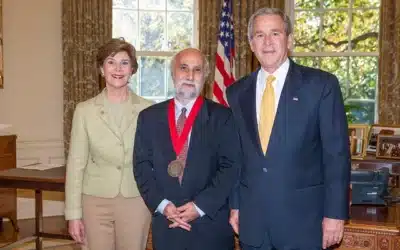Johnson spoke grandly of using ‘submarine-based cruise missiles in the Med’ against Assad to support Trump, but in fact Britain’s capacity to do anything militarily effective is very limited
There is nothing surprising in Boris Johnson saying that it would be difficult for the UK not to join US military action in Syria against President Bashar al-Assad’s forces in response to a chemical weapons attack. Since the Second World War British governments have been trying to strengthen the UK’s status as the most important military ally of the US. But after 9/11 this obeisance became more craven and knee-jerk, despite producing failed British military ventures in Iraq and Afghanistan.
With the Trump administration in power in the US, these British efforts to prove to Washington the usefulness and reliability of its links to the UK have become ever more desperate. Britain’s departure from a major alliance like the EU, and likely confrontation with it over the terms of Brexit, is bound to make Britain less of a power in the world. It therefore needs to foster closer relations with Trump’s America along with an unsavoury list of countries such as Turkey, Saudi Arabia and Bahrain.
This may be a little more dangerous than it looks because nobody quite knows what the Trump foreign policy will amount to in Syria and Iraq. Is it, for instance, going to confront Iran and tear up the nuclear agreement with Tehran? Has it reverted to giving priority, at least nominally, to getting rid of Assad? These questions are worth thinking about, if only so as not to repeat the ill-thought-out flippancy with which British governments plunged into such dangerous places as Basra in southern Iraq in 2003 where it ended up signing a humiliating truce with the Mehdi Army Shia militia.
But the historic parallels are not exact, because the British role in the world has diminished since the high days of the Blair governments. Policy then may have been wrong-headed and frequently underestimated the military and political strength of the enemies they were about to take on. These days the gap between British threats and its ability to make them good is wider than ever and is mostly bravado.
Johnson spoke grandly of using “submarine-based cruise missiles in the Med” against Assad, but in fact Britain’s capacity to do anything militarily effective is very limited. This point was difficult to get across during the debate in 2015 about UK aircraft joining the US-led air campaign attacking Isis in Syria. Few on either side of the argument seemed to take on board that Britain simply did not have the capacity to launch more than a few symbolic strikes. The House of Commons Defence Committee eventually found out that Britain had launched just 65 airstrikes in Syria in the first nine months after the first attack.
The danger facing Britain is that so much of its foreign policy is based on wishful thinking and fantasy. This was true in Iraq, Afghanistan and Libya after 2001 and is true again in Syria today. What is the purpose of bombing Assad? Is it to deter him from using chemical weapons, supposing he did, or to weaken and overthrow him? And if he is overthrown what is to prevent his regime being replaced by Isis and al-Qaeda-type groups who wholly dominate the armed opposition in Syria.
David Cameron was happy to pretend that the US and Britain would be aided by 70,000 “moderate” fighters in Syria willing to battle both Isis and Assad, though anybody with any experience on the ground in Syria knew that such a force did not exist.
The clamour over Johnson’s claim that the UK might join the US in strikes against the Syrian armed forces is based on a fiction. Both hawks and doves assume an effective British military capacity that is no longer there. Probably Johnson’s words will lead to nothing except a few headlines, but play-acting in a place as dangerous as the Middle East can be a risky business.































